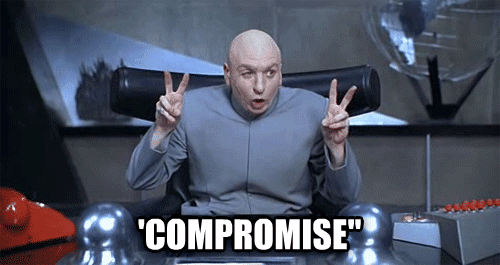Final Copyright “compromise”: Upload filters for everyone but Google & Co
On 21 February, the rapporteur of the European Parliament’s Committee on Legal Affairs (JURI) Axel Voss issued his suggestion for a “compromise” on the Copyright reform, on which the Committee will vote in April.
On 21 February, the rapporteur of the European Parliament’s Committee on Legal Affairs (JURI) Axel Voss issued his suggestion for a “compromise” on the Copyright reform, on which the Committee will vote in April.
As expected, Voss’ proposal maintains the highly controversial Article 13, which forces web services to impose a “censorship machine” to filter all uploads from every user in the EU. Ironically, Voss sells his proposal as a “compromise” by adding one rule which will ultimately reinforce the dominant positions of platforms like Facebook or YouTube while non-profit platforms such as Wikipedia would be forced to employ upload filters.
Voss suggests that platforms that allow users to upload content are not obliged to install any pre-filtering technology, if they obtained a licensing agreement with rightsholders. Big platforms like YouTube or Facebook are already concluding such licence agreements. Facebook, for instance, recently announced the signing of a licensing agreement with Sony/ATV Music Publishing which oversees a catalogue of more than three million songs. Thanks to Voss’ proposal, the big platforms could easily avoid the obligation to implement upload filters.
Platforms like Wikipedia or also open source hosting providers like Github, however, do not have such licensing agreement. For good reasons: Their service exists to allow collaborative creation and recombination of open-licensed contents. Forcing these platforms to pay license fees or to install upload filters like Voss’ proposal foresees would be a grave interference in their freedom to conduct a business. To sum up, Voss’ “compromise” would leave most websites the choice between the devil and the deep blue sea.
In line with the original extreme position of the Commission, Voss proposes that these rules should apply to platforms where users upload “significant amounts” of content. What makes the proposal so malicious is the alleged possibility to eliminate dangers for the freedom of expression through licensing agreements. Yet, the reality is that these licensing agreements are only a realistic option for the biggest platforms.
It has long been clear that these proposals, which aim to strengthen copyright law as a response to the dominance of Google & Co are highly likely to end up achieving the contrary by reinforcing their position. However, it has never been as clear as it is now with Voss’ proposal.
Besides that, there are two other pieces of logical and legal comedy in the text:
1) The “compromise” says that “service providers shall also respect users’ rights under the Charter of Fundamental Rights of the European Union”. Despite being, apparently, a qualified lawyer, Voss seems unaware of the scope of applicability of the Charter, as defined by its Article 51.1:
“1. The provisions of this Charter are addressed to the institutions, bodies, offices and agencies of the Union with due regard for the principle of subsidiarity and to the Member States only when they are implementing Union law.”
Internet services providers have no obligations whatsoever under the Charter of Fundamental Rights of the EU.
2) The “compromise” explains that users should have a redress mechanism if their rights are restricted AND that “should not require the identification of individual users and the processing of their personal data”. What Voss fails to explain is how individual users can complain if the provider has not stored any personal data about the content that they have unfairly deleted. Sadly, the “compromise” is littered with such contradictions and misunderstandings of basic legal principles.
In late April, the JURI Committee will vote on Voss’ proposal. If the Copyright proposal receives a majority of votes in the JURI Committee and later also in European Parliament plenary, the final decision will depend on the votes of the Member States, in the Council of the EU.

This article is partly based on an article published on Netzpolitik.org (CC BY-NC-SA 4.0): https://netzpolitik.org/2018/copyright-update-2-upload-filter-fuer-alle-ausser-google-facebook-co/
Proposal for a Directive on Copyright in the Digital Single Market (21.02.2018)
https://juliareda.eu/wp-content/uploads/2018/02/20180221-Draft-CA-on-Article-13_v1.pdf
https://edri.org/files/copyright/copyright_proposal_article13.pdf
http://variety.com/2018/biz/news/facebook-and-sony-atv-music-publishing-announce-licensing-agreement-1202656832/

